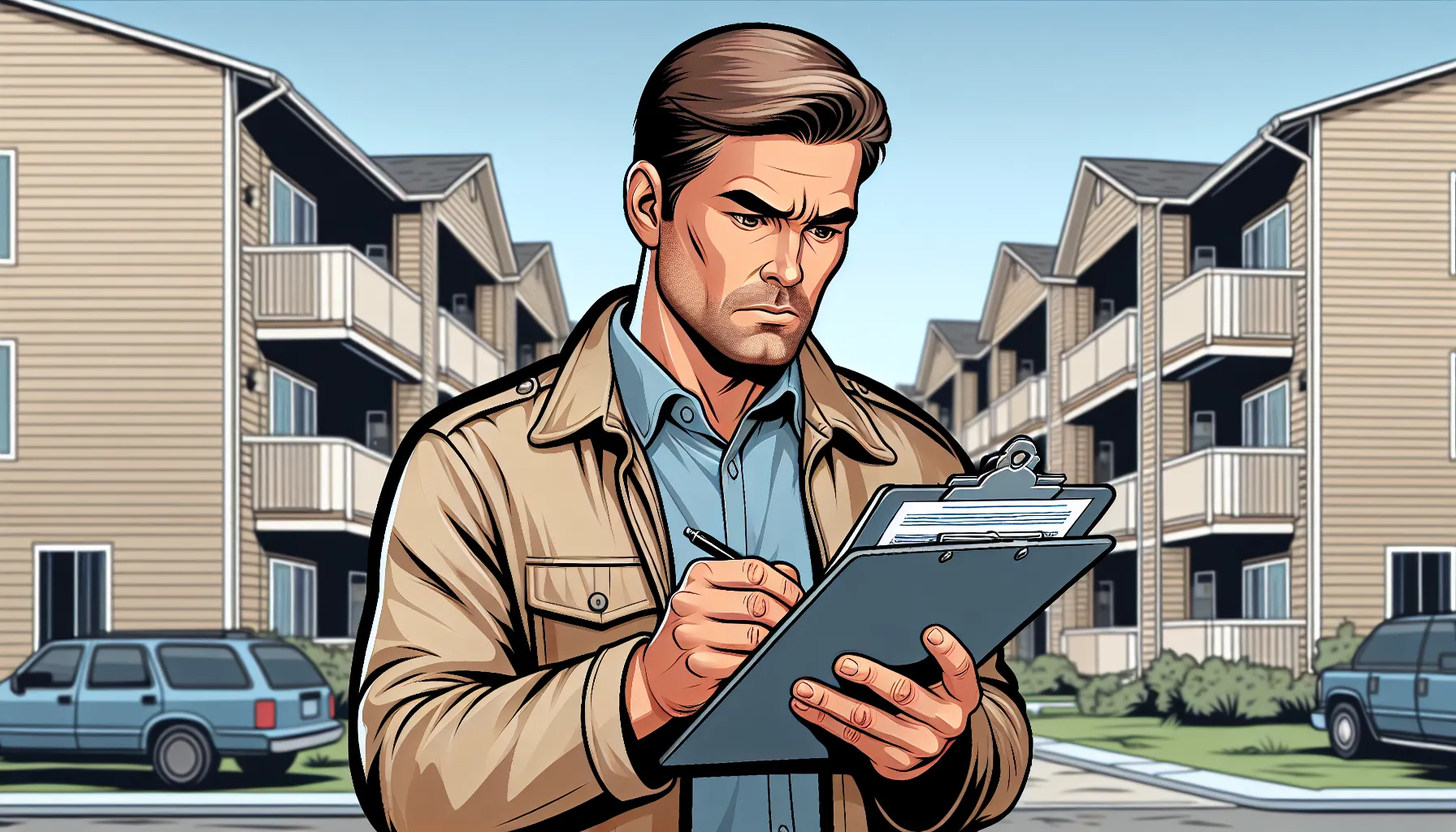Key Takeaways
- Understanding Pleasant Hill’s housing compliance is crucial for both protecting your rental investment and ensuring tenant safety and satisfaction.
- Common challenges include managing inspections, maintaining accurate records, and staying up to date with annual code changes and deadlines.
- Helpful resources are available, such as city housing departments, local nonprofits, and professional legal services to guide landlords and residents through compliance processes.
- Proactive steps—like regular property reviews, organized documentation, and consistent communication with both tenants and city officials—can simplify compliance and prevent costly issues.
- Setting reminders for deadlines and subscribing to city updates help ensure you never miss important requirements or changes in Pleasant Hill housing regulations.
Finding your way through Pleasant Hill’s housing compliance requirements can feel overwhelming. I know how challenging it is to keep up with city rules, inspections, and paperwork—especially if you’re new to rental property ownership or just want peace of mind. Maybe you’re worried about missing an important deadline or unsure where to start with local inspections.
Have you ever wondered if you’re truly meeting all the city’s expectations? You’re not alone. Many landlords and property owners share these concerns. That’s why understanding the basics of Pleasant Hill’s housing compliance is so important. With the right guidance, you can protect your investment and create a safe, welcoming environment for your tenants. What questions do you have about staying compliant in Pleasant Hill?
Understanding Housing Compliance in Pleasant Hill
Housing compliance in Pleasant Hill means following city regulations that maintain safe, healthy rental properties. I work hard to stay up-to-date with rule changes because codes may shift each year based on local safety concerns. Most property owners ask, “What does the city expect from me?” Common topics include regular inspections, habitability standards, and required documentation. These requirements often cover areas such as smoke detector placement, pest control, and maintenance of heating systems.
I know many people worry about missing required inspections or forgetting paperwork. Cities usually schedule semi-annual or annual checks and expect up-to-date records, including lease agreements and maintenance logs. Are you confident that all your rental units meet Pleasant Hill’s current health and safety standards? If not, you’re not alone.
Staying in compliance protects rental investments and helps keep tenants happy. Inspections identify small issues before they become costly repairs. Keeping tenants satisfied means they’re also more likely to continue their leases and pay rent on time. Have you ever received a notice from the city and felt unsure about what steps to take next?
Completing compliance paperwork and preparing properties for inspection can seem overwhelming, especially when juggling other priorities. I ask myself regularly if each property is ready for a surprise inspection or update. Which compliance task do you find most confusing right now? Sharing those concerns is the first step to finding reliable answers and solutions.
Common Compliance Challenges for Residents and Landlords

Many residents and landlords in Pleasant Hill face ongoing questions about city inspections and record-keeping. I often hear about worries with scheduling and passing semi-annual inspections. Each inspection checks for working smoke detectors, safe stairways, and proper locks, which city officials review carefully. Have you ever wondered if you’re ready before an inspector visits?
Keeping organized records tops another list of challenges. I meet landlords who struggle to maintain documentation like lease agreements, inspection logs, or maintenance receipts. These documents help show compliance if issues arise but can be easy to misplace. How do you currently store your records?
Meeting habitability standards isn’t just about following laws—it’s about protecting your investment and tenants’ well-being. Some districts update codes every year, requiring prompt attention to new standards like carbon monoxide detector placement or plumbing repairs. Have you reviewed recent code updates this year?
Timing also creates pressure. Late paperwork submissions or missed deadlines, such as annual registration or inspection requests, may lead to fines. Many landlords ask how to keep up without missing key dates. What reminders or systems work for you to keep on top of these tasks?
Responding quickly to tenant requests matters, too. Tenants value fast fixes for repairs and clear communication about timelines. I’ve learned that satisfied tenants often renew leases longer and pay on time. How do you handle tenant issues so they feel valued?
These challenges affect many Pleasant Hill property owners and residents. What hurdles have you run into, and how do you address them?
Available Pleasant Hill Housing Compliance Help Resources

Finding support for Pleasant Hill housing compliance can make all the difference, especially if you’ve felt overwhelmed by city rules and paperwork. I’ve gathered several helpful resources below. Which of these would most help you meet your compliance goals?
Local Government Assistance Programs
City housing departments offer guidance on current Pleasant Hill codes. Staff answer questions about required inspections, forms, and deadlines. Public workshops and online FAQs help property owners understand common compliance issues and avoid penalties.
Do you need info about inspection schedules or housing safety standards? Direct calls to the city housing office often result in clear, actionable steps. Online complaint forms make it simple to address property concerns and request official checks.
Nonprofit and Community-Based Support
Local nonprofits support both renters and landlords by explaining compliance basics and helping fill out paperwork. They provide free or low-cost workshops too. Popular topics include safety upgrades—like smoke alarms—and emergency repair grants.
Have you worked with neighborhood centers or advocacy groups for plain-language guides? Staff and volunteers help build landlord-tenant cooperation, often resolving disputes before they grow. This support network helps answer specific questions others may overlook.
Professional Legal and Consulting Services
Attorneys and consultants familiar with Pleasant Hill housing laws can review your documents, represent you at hearings, and help resolve disputes with tenants or the city. They clarify which laws apply to your property and how to maintain compliance through every season.
Are you seeking one-on-one guidance? Legal services can draft leases, review inspection findings, and suggest recordkeeping systems. This professional help reduces compliance stress and lowers the risk of costly mistakes. Which legal tools would you use to simplify your property oversight?
Steps to Address Housing Compliance Issues

Addressing housing compliance issues in Pleasant Hill sometimes feels confusing, especially when deadlines and paperwork pile up. Clear steps make the process easier to manage and can reduce stress for landlords and residents alike. Have you noticed areas where compliance tasks get overwhelming for you?
Preparing Documentation and Understanding Requirements
Thoroughly preparing documentation creates a strong foundation for passing compliance checks. Lease agreements, inspection reports, and maintenance logs give a record of your efforts. I regularly gather documents such as smoke detector installation certificates and receipts for recent repairs before review. City housing codes specify safety and habitability standards; these outline items like heating, secure windows, and functioning locks. Checking the current requirements once a year helps avoid outdated information. How do you organize records or track changes to city codes?
Communicating With the Housing Authority
Direct communication with the Pleasant Hill housing authority speeds up the resolution of most compliance issues. I reach out by phone or email if questions about specific code details or deadlines come up. Quick responses from officials often help clarify what’s needed, reducing the risk of missed steps or potential fines. Scheduled inspections or document submissions go more smoothly when you keep a written record of conversations with city staff. What’s your process for getting timely answers from local housing officials? Do you find direct calls or digital contact more effective for your situation?
Preventative Tips for Future Compliance

I focus on regular property reviews to stay ready for any inspection. Each spring and fall, I schedule walk-throughs and closely check common problem areas—smoke detector batteries, window locks, and plumbing fixtures. What steps do you take to keep your rental ready year-round?
I keep detailed records of every inspection, repair, and tenant request in one accessible file. Organized documentation means I can respond quickly if the housing office asks for proof. How do you manage your records? Many owners find digital storage easier to update and retrieve.
I pay close attention to city compliance updates. Each year, Pleasant Hill may adjust requirements—like new smoke alarm rules or updated safety standards. I subscribe to notifications from the city’s housing department so I don’t miss these changes. Are you signed up for city code alerts?
I maintain open communication with tenants. When they report maintenance concerns promptly, I can handle repairs before minor issues grow into costly violations. How quickly do you respond to tenant reports? Proactive communication often prevents complaints and helps maintain a positive rental reputation.
I set reminders for paperwork deadlines, such as registration renewals and proof-of-inspection forms. These reminders help me avoid late fees and keep my property status current. Do you have a system for tracking important housing deadlines?
I encourage collaboration and sharing of best practices within the landlord community. What preventative strategies have helped you achieve consistent compliance? Sharing tips can help others facing similar challenges.
Conclusion
Staying on top of Pleasant Hill housing compliance can feel overwhelming but it’s absolutely manageable with the right approach. I’ve found that being proactive and using available resources makes a real difference in reducing stress and avoiding costly mistakes.
If you’re facing compliance challenges or have tips that have worked for you I’d love to hear about your experiences. Let’s work together to make Pleasant Hill’s rental market safer and more successful for everyone.
Frequently Asked Questions
What is housing compliance in Pleasant Hill?
Housing compliance in Pleasant Hill means adhering to city rules that ensure rental properties are safe and livable. This includes regular inspections, meeting habitability standards, and maintaining updated documentation for your property.
Why is housing compliance important for landlords?
Staying compliant protects your investment, helps avoid fines, and ensures tenant safety. Compliant properties also attract longer leases and timely rent payments since satisfied tenants are more likely to stay.
What are common compliance challenges for landlords?
Landlords often face challenges with scheduling inspections, keeping paperwork organized, meeting habitability standards, and submitting documents on time to avoid penalties.
How can landlords stay updated on housing regulations?
Landlords should regularly check the Pleasant Hill city website for rule changes, sign up for local government updates, and attend related workshops to stay informed about compliance requirements.
What documents are essential for proving housing compliance?
Key documents include lease agreements, inspection reports, maintenance logs, and records of smoke detector checks. Keeping organized records will help you pass inspections and respond to city requests quickly.
What happens if I miss a compliance deadline?
Missing compliance deadlines can result in fines, penalties, or delays in renting your property. Staying organized and setting reminders helps prevent late submissions and keeps your rental business running smoothly.
Where can I get help with housing compliance in Pleasant Hill?
Local government programs, nonprofit organizations, and legal or consulting professionals can provide guidance. These resources offer assistance with understanding rules, organizing paperwork, and addressing compliance challenges.
What are some tips to prevent future compliance problems?
Schedule regular property inspections, keep detailed records, set reminders for deadlines, and maintain open communication with tenants. Collaborating with other landlords can also help you learn best practices and stay compliant.
How does compliance benefit my tenants?
Compliance ensures a safe, clean, and well-maintained living environment. Tenants are happier, more likely to renew leases, and more consistent with rent payments when they feel protected and respected.
What should I do if I have questions about compliance?
Contact the Pleasant Hill housing authority or a trusted legal advisor for clarification. Keeping written records of your communication with officials can help resolve any issues efficiently.
